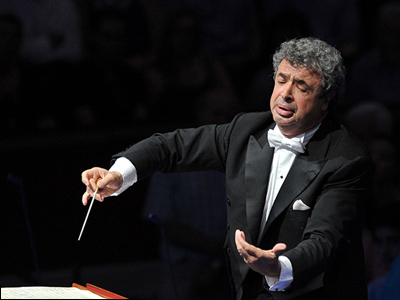By Sedgwick Clark
A purported “Russian Day Celebration” on June 12 at Carnegie Hall was one of the more perplexing concerts of the season. Widely publicized was the legendary St. Petersburg Philharmonic, with the orchestra’s “Deputy Artistic Director,” Nikolai Alexeev, on the podium rather than its distinguished artistic director, Yuri Temirkanov. The program was unimaginative, but Tchaikovsky’s Fourth and Shostakovich’s Fifth are two of my favorite symphonies, and it was a Friday night with nothing else to do. It turned out that an intermission kerfuffle was most memorable.
Alexeev proved himself to be a faceless time beater. His Tchaik 4 was low voltage and disgracefully uncommitted for an orchestra of the SPb Phil’s heritage. The famous pizzicato scherzo, in particular, was shockingly flat. For some reason, the orchestra seemed transformed in the Shosta 5. After several ragged attacks at the beginning, the players settled down and proved that they hadn’t forgotten what the music means, playing with genuine involvement. The double basses dug in, violins had bite in the pianissimos, pizzicatos had presence, and the players were attentive, no longer swallowing their notes as they had in the Tchaikovsky. Even the conductor showed some involvement, although not to the point of any interpretive distinction. The finale’s coda was played the Russian way, slowly.
Oh, yes, the kerfuffle.
An imposingly large Russian audience member, decked out head to toe in white with a red sport coat, was sitting on the other side of the aisle, two rows in front of us. He had been flipping nonstop through photos, apps, and websites on his Smartphone throughout the first half. During intermission, an elderly American concertgoer in the row behind him politely asked the Russian to stop disturbing his neighbors. The Russian stood up and shouted, “Who are you?” He pointed at the man and said, “Go sit down. Do you know who I am? You won’t get home tonight.” The American replied, “You’re not in Russia now,” and went to get an usher. PK then went over to the ruffian and said, “I was actually about to ask you the same thing,” to which he demanded, “Why are you looking at my phone?” She countered that “it is directly in my sightline and I can’t avoid it.” He was chastened enough that he put his phone away and just fidgeted incessantly throughout the Shostakovich. Is this the sort of Russian Day performance Mr. Putin had in mind?
